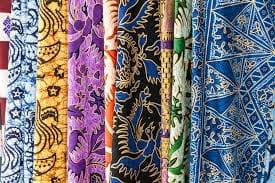Exports 5-00 lakh Tonnes and imports 9-00 lakh Tonnes.
Representatives from the Indonesian Government, the textile and fashion sectors and industry associations recently signed a memorandum of understanding (MoU) in PangkalanKerinci, Riau, to optimize locally-sourced, sustainably-produced rayon to drive the growth of the national textile industry, a primary strength of the country’s economy.
The signatories include the Indonesian Textile Association (API), the Indonesian Association of Synthetic Fibre Producers (APSyFI), the Indonesia Fashion Chamber.
AchmadSigitDwiwahjono, the industry ministry’s director general of chemical, textile and miscellaneous industries, said the government was committed to developing the textile industry by promoting local products and attracting investors.
The government wants to promote the use of locally-sourced textiles, such as rayon and polyester fibres, to lessen dependence on imported products, a report in a top Indonesian newspaper quoted Sigit as saying.
In the past three years, Indonesia has seen increased exports of local textiles and textile products, with export value increasing from $11.87 billion in 2016 to $12.59 billion in 2017 and $13.27 billion in 2018. Clothing constitutes 63.1 per cent of exports, Sigit said.
The increased use of viscose rayon, or rayon, in manufacturing is expected to increase the production output of the textile industry, especially as the textile can act as a substitute for polyester and cotton. Local production of polyester and cotton still does not meet domestic demand.
Competitively-priced and eco-friendly rayon can be an alternative material in Indonesia, said Asia Pacific Rayon (APR) director Basrie Kamba. APR, which began production in December last, has already produced 120,000 tonnes of rayon fibre. Almost half of the output is used in the domestic market, while the rest is exported to countries like Turkey, Pakistan, Bangladesh, Vietnam, Germany and Italy.
APSyFI secretary general Redma Gita said that the national textile industry was suffering a massive trade deficit, exporting 500,000 tonnes of garments and importing 900,000 tonnes, and urged the government to develop a policy strategy to protect the industry.

